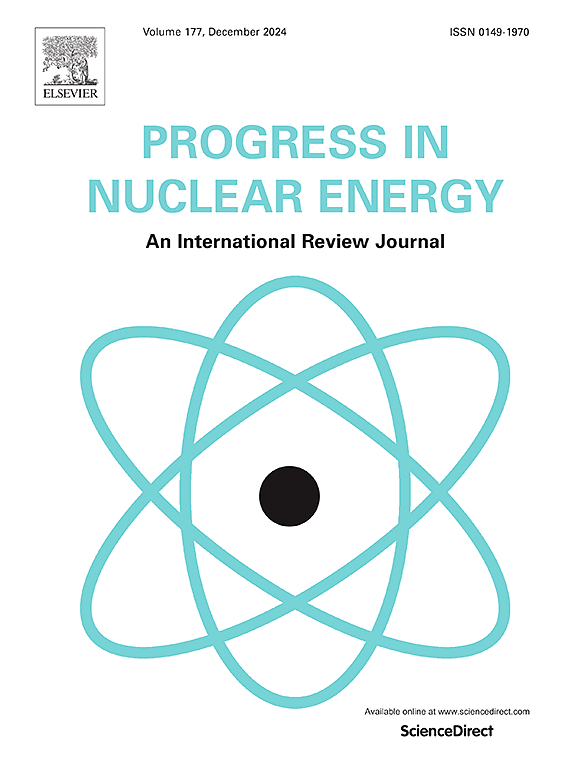Examining lessons learned from the COVID-19 response to inform nuclear emergency management
IF 3.2
3区 工程技术
Q1 NUCLEAR SCIENCE & TECHNOLOGY
引用次数: 0
Abstract
Decision makers and public health officials in public health emergencies are faced with multiple challenges including uncertain information, incomplete information, pressures from the public, to name a few. When faced with time pressure, these factors can lead to poor decisional outcomes. As there are a number of parallels between the COVID-19 pandemic response and nuclear emergency management, this study extracts lessons learned and other insights from the COVID-19 pandemic to inform decision makers with roles in nuclear emergency management. Five subject-matter experts who had critical roles during the COVID-19 response within Canada were interviewed in this study. The study shows that to make effective decisions, emergency management organizations should build and maintain awareness about local communities and vulnerable groups that may be impacted by an emergency. They also need decision support tools to quantify socio-economic and mental health impacts of all public health interventions. The paper presents other recommendations applicable in the preparatory and response phases of emergency management, which include conducting exercises with bias-inducing injects, communicating unknowns and being transparent with the public, ensuring consistency across messages, considering long-term impacts of decisions such as fatigue, maintaining awareness of public perspectives, delivering effective messages, and countering misinformation. Many of these considerations are aimed at providing balanced perspectives in decision making, which may reduce the likelihood of bias.
审查2019冠状病毒病应对经验教训,为核应急管理提供信息
突发公共卫生事件中的决策者和公共卫生官员面临多重挑战,包括信息不确定、信息不完整、来自公众的压力等等。当面临时间压力时,这些因素会导致糟糕的决策结果。鉴于2019冠状病毒病大流行应对与核应急管理之间存在许多相似之处,本研究总结了2019冠状病毒病大流行的经验教训和其他见解,为决策者在核应急管理中发挥的作用提供信息。本研究采访了在加拿大COVID-19应对过程中发挥关键作用的五位主题专家。研究表明,为了做出有效决策,应急管理组织应建立和保持对可能受紧急情况影响的当地社区和弱势群体的认识。他们还需要决策支持工具来量化所有公共卫生干预措施的社会经济和心理健康影响。该文件提出了适用于应急管理准备和响应阶段的其他建议,其中包括进行带有偏见的注射练习、就未知情况进行沟通并对公众保持透明、确保信息的一致性、考虑疲劳等决策的长期影响、保持对公众观点的认识、传递有效信息以及打击错误信息。许多这些考虑的目的是在决策中提供平衡的观点,这可能会减少偏见的可能性。
本文章由计算机程序翻译,如有差异,请以英文原文为准。
求助全文
约1分钟内获得全文
求助全文
来源期刊

Progress in Nuclear Energy
工程技术-核科学技术
CiteScore
5.30
自引率
14.80%
发文量
331
审稿时长
3.5 months
期刊介绍:
Progress in Nuclear Energy is an international review journal covering all aspects of nuclear science and engineering. In keeping with the maturity of nuclear power, articles on safety, siting and environmental problems are encouraged, as are those associated with economics and fuel management. However, basic physics and engineering will remain an important aspect of the editorial policy. Articles published are either of a review nature or present new material in more depth. They are aimed at researchers and technically-oriented managers working in the nuclear energy field.
Please note the following:
1) PNE seeks high quality research papers which are medium to long in length. Short research papers should be submitted to the journal Annals in Nuclear Energy.
2) PNE reserves the right to reject papers which are based solely on routine application of computer codes used to produce reactor designs or explain existing reactor phenomena. Such papers, although worthy, are best left as laboratory reports whereas Progress in Nuclear Energy seeks papers of originality, which are archival in nature, in the fields of mathematical and experimental nuclear technology, including fission, fusion (blanket physics, radiation damage), safety, materials aspects, economics, etc.
3) Review papers, which may occasionally be invited, are particularly sought by the journal in these fields.
 求助内容:
求助内容: 应助结果提醒方式:
应助结果提醒方式:


